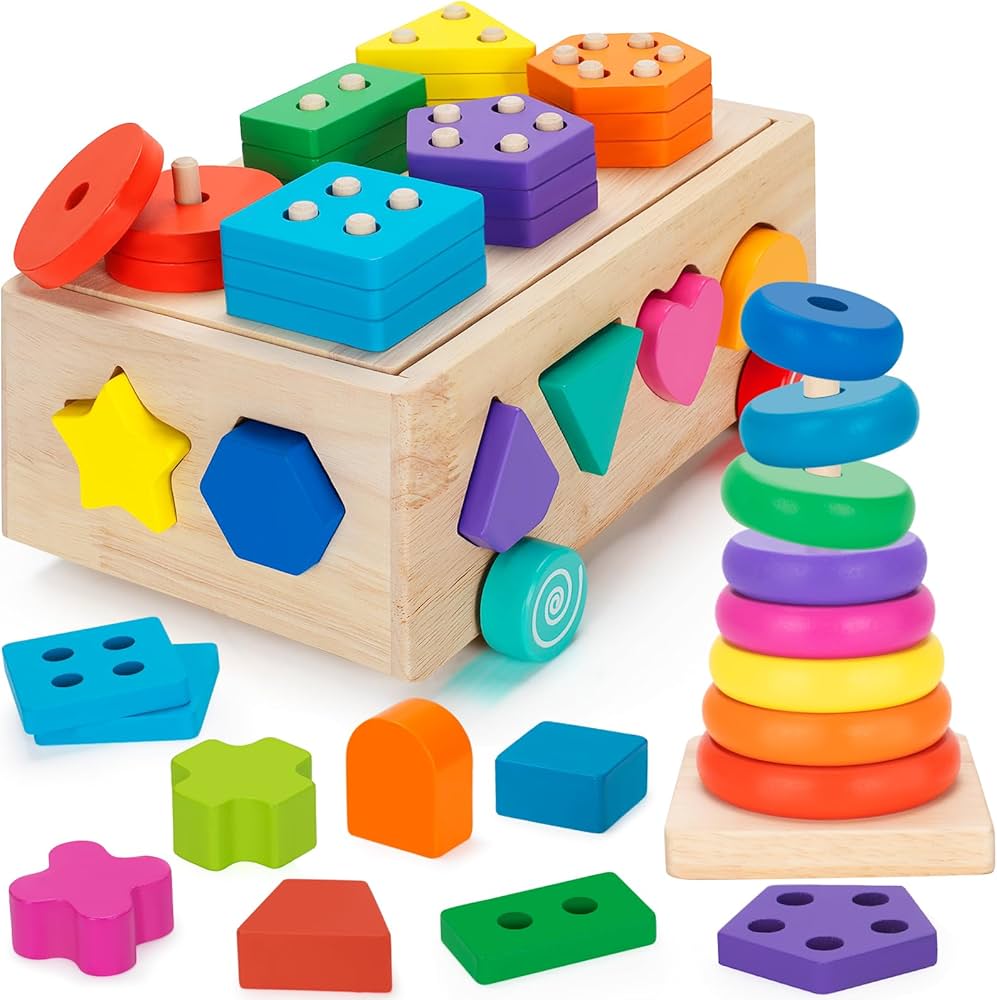
In today’s fast-paced world, parents are increasingly seeking toys that not only entertain but also foster creativity and learning in their children. Montessori toys have emerged as a popular choice, designed to stimulate young minds while adhering to the principles of Montessori education. Let’s delve into the power of these toys and how they unlock creativity for babies and toddlers.
What Are Montessori Toys?
Montessori toys are specifically crafted to engage children in open-ended play. They promote exploration and problem-solving, allowing kids to learn at their own pace. Made from natural materials, such as wood, these toys often emphasize tactile experiences that help develop fine motor skills and cognitive abilities.
Benefits of Montessori Toys
- Promotes Independence: Montessori toys encourage self-directed learning. Children learn to make choices, solve problems, and engage in activities without constant adult supervision.
- Enhances Creativity: By allowing children to explore freely, these toys inspire imaginative play. For example, Montessori baby toys like stacking blocks or sorting shapes can lead to endless creative scenarios.
- Supports Developmental Milestones: Age-appropriate Montessori toys for 1-year-olds, such as wooden sensory toys, cater to specific developmental stages, promoting skills like hand-eye coordination and spatial awareness.
Types of Montessori Toys
- Montessori Wooden Toys: Durable and eco-friendly, these toys are ideal for young hands. Popular choices include building blocks, puzzles, and sorting trays.
- Montessori Sensory Toys: Designed to stimulate the senses, these toys often feature various textures, sounds, and colors. They are perfect for babies and toddlers, helping them discover the world around them.
- Montessori Learning Toys: These educational toys are tailored to specific learning objectives. For instance, Montessori toys for 2-year-olds might include simple counting games or matching activities.
Age-Specific Recommendations
- Montessori Toys for Babies (0-12 months): At this age, look for toys that encourage sensory exploration, like soft cloth books or simple rattles.
- Best Montessori Toys for 1-Year-Olds: Toys such as shape sorters or stacking rings can help develop motor skills while being engaging and fun.
- Montessori Toys for Toddlers (2-3 years): Focus on toys that promote imaginative play, such as play kitchens or tool sets, to spark creativity.
- Montessori Toys for 3-Year-Olds and Beyond: As children grow, toys that challenge their problem-solving abilities, like building kits or logic games, become essential.
Where to Find Montessori Toys
You can find a wide selection of Montessori toys at various retailers, including:
- Amazon for an extensive range of options, from Montessori toys for toddlers to specialized educational toys.
- Target and Walmart offer affordable choices for parents seeking quality without breaking the bank.
- Local toy stores may also carry authentic Montessori toys that adhere to the educational philosophy.
Here are some trending questions and answers related to “Montessori Toys” that can help engage readers and provide valuable information:
1. What are Montessori toys?
Answer: Montessori toys are specially designed educational tools that encourage hands-on learning and independent exploration. They are typically made from natural materials, promoting sensory experiences and skill development through play.
2. Why are Montessori toys beneficial for children?
Answer: Montessori toys promote independence, creativity, and critical thinking. They are crafted to align with developmental milestones, helping children enhance their motor skills, cognitive abilities, and problem-solving skills while engaging in open-ended play.
3. What age group are Montessori toys suitable for?
Answer: Montessori toys are available for various age groups, including infants (0-12 months), toddlers (1-3 years), and preschoolers (3-6 years). Each toy is designed to cater to specific developmental stages, ensuring appropriate challenges and engagement.
4. Are wooden Montessori toys better than plastic ones?
Answer: Many parents prefer wooden Montessori toys because they are more durable, eco-friendly, and often considered safer than plastic. Wooden toys also provide a tactile experience that enhances sensory development.
5. Where can I buy Montessori toys?
Answer: Montessori toys can be found at various retailers, including online platforms like Amazon, as well as stores like Target and Walmart. Local toy shops may also carry authentic Montessori options.
6. What are some examples of the best Montessori toys for 1-year-olds?
Answer: Some of the best Montessori toys for 1-year-olds include stacking rings, shape sorters, and simple puzzles. These toys help develop fine motor skills and hand-eye coordination while encouraging exploration.
7. Do Montessori toys really make a difference in learning?
Answer: Yes, Montessori toys are designed to enhance learning through active engagement. They encourage children to explore, experiment, and learn independently, fostering a lifelong love of learning.
8. Are Montessori toys safe for babies?
Answer: Authentic Montessori toys are typically made from non-toxic, natural materials, making them safe for babies. However, it’s important for parents to check for safety certifications and age recommendations before purchasing.
9. What makes Montessori toys different from regular toys?
Answer: Montessori toys are designed to promote independent learning and critical thinking. Unlike regular toys that may focus on passive play, Montessori toys encourage children to explore, experiment, and use their imagination.
10. Can I find affordable Montessori toys?
Answer: Yes, there are many affordable Montessori toys available at various price points. Retailers like Walmart and Target often carry budget-friendly options, and there are also DIY ideas for creating your own Montessori-inspired toys at home.
Conclusion
Investing in Montessori toys is not just about choosing playthings; it’s about nurturing creativity and fostering a love for learning in young minds. By selecting age-appropriate, engaging toys, parents can support their children’s developmental journey while ensuring that playtime is both enjoyable and educational. So, whether you’re looking for Montessori toys for 1-year-olds or 2-year-olds, remember that the right toy can make a significant difference in your child’s growth and exploration. Embrace the power of Montessori today!